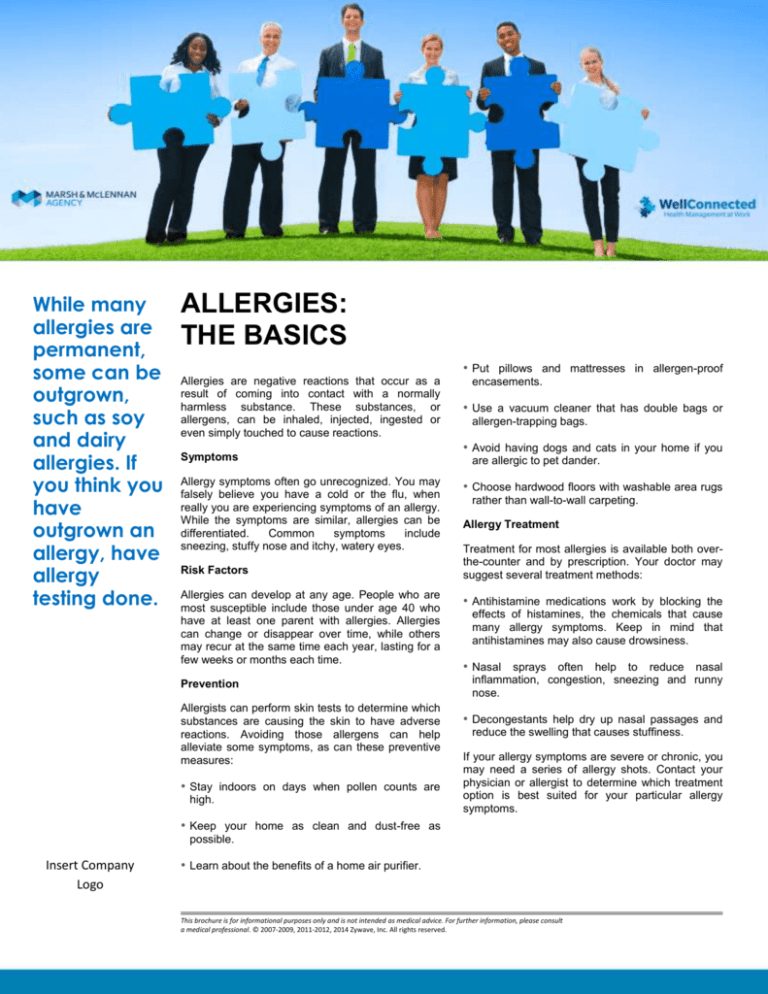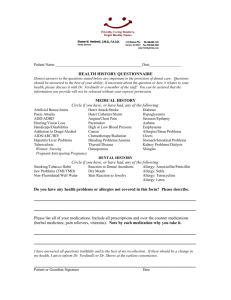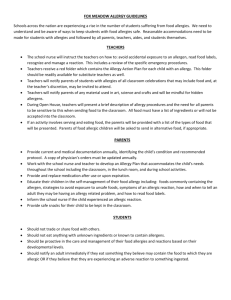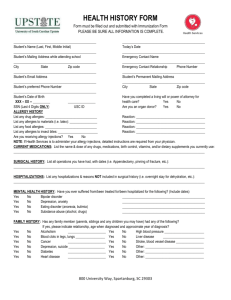
While many
allergies are
permanent,
some can be
outgrown,
such as soy
and dairy
allergies. If
you think you
have
outgrown an
allergy, have
allergy
testing done.
ALLERGIES:
THE BASICS
• Put pillows and mattresses in allergen-proof
Allergies are negative reactions that occur as a
result of coming into contact with a normally
harmless substance. These substances, or
allergens, can be inhaled, injected, ingested or
even simply touched to cause reactions.
Symptoms
Allergy symptoms often go unrecognized. You may
falsely believe you have a cold or the flu, when
really you are experiencing symptoms of an allergy.
While the symptoms are similar, allergies can be
differentiated.
Common
symptoms
include
sneezing, stuffy nose and itchy, watery eyes.
Risk Factors
Allergies can develop at any age. People who are
most susceptible include those under age 40 who
have at least one parent with allergies. Allergies
can change or disappear over time, while others
may recur at the same time each year, lasting for a
few weeks or months each time.
Prevention
Allergists can perform skin tests to determine which
substances are causing the skin to have adverse
reactions. Avoiding those allergens can help
alleviate some symptoms, as can these preventive
measures:
• Stay indoors on days when pollen counts are
high.
encasements.
• Use a vacuum cleaner that has double bags or
allergen-trapping bags.
• Avoid having dogs and cats in your home if you
are allergic to pet dander.
• Choose hardwood floors with washable area rugs
rather than wall-to-wall carpeting.
Allergy Treatment
Treatment for most allergies is available both overthe-counter and by prescription. Your doctor may
suggest several treatment methods:
• Antihistamine medications work by blocking the
effects of histamines, the chemicals that cause
many allergy symptoms. Keep in mind that
antihistamines may also cause drowsiness.
• Nasal sprays often help to reduce nasal
inflammation, congestion, sneezing and runny
nose.
• Decongestants help dry up nasal passages and
reduce the swelling that causes stuffiness.
If your allergy symptoms are severe or chronic, you
may need a series of allergy shots. Contact your
physician or allergist to determine which treatment
option is best suited for your particular allergy
symptoms.
• Keep your home as clean and dust-free as
possible.
Insert Company
Logo
• Learn about the benefits of a home air purifier.
This brochure is for informational purposes only and is not intended as medical advice. For further information, please consult
a medical professional. © 2007-2009, 2011-2012, 2014 Zywave, Inc. All rights reserved.





